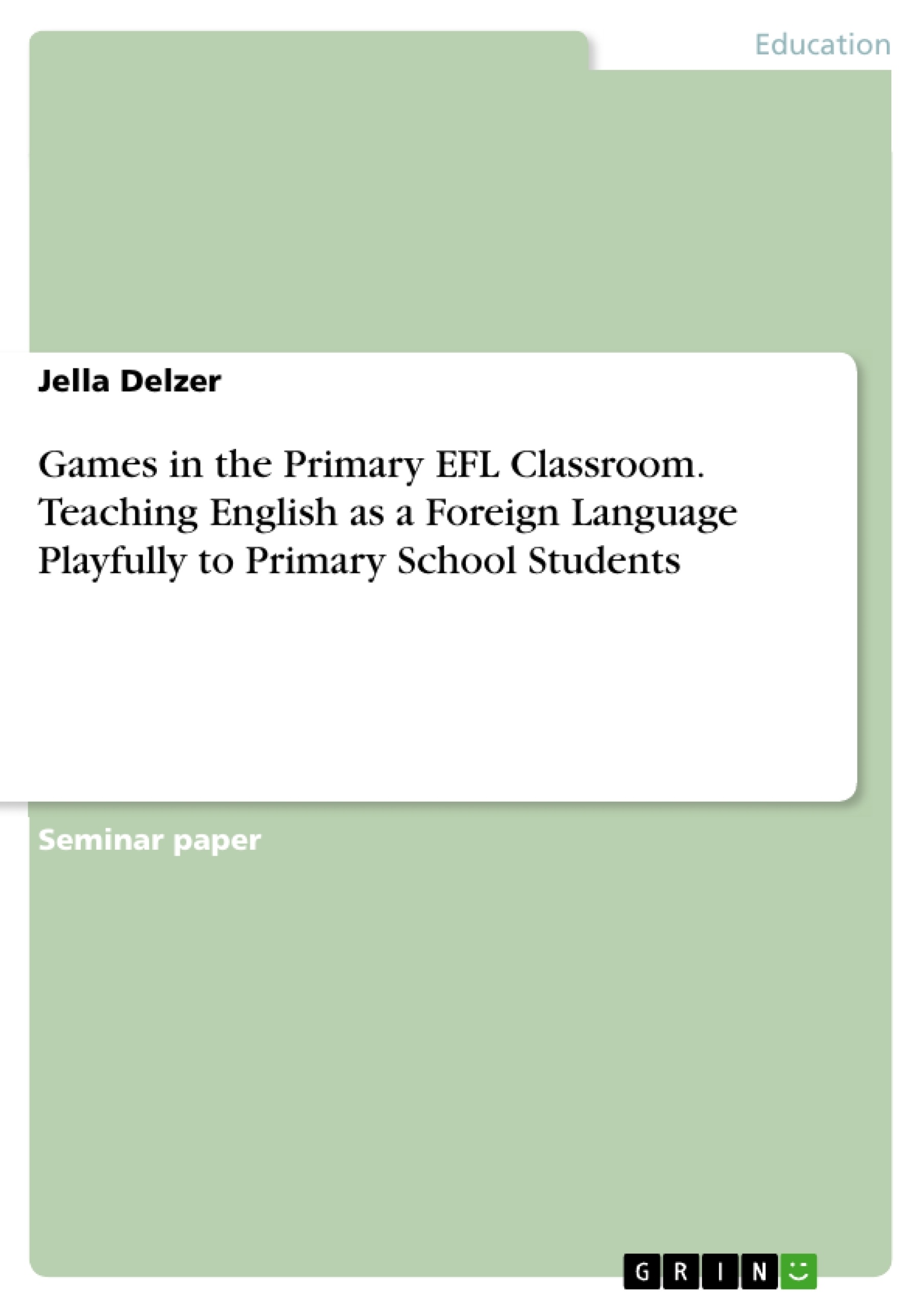The aim of this paper is to raise awareness of the importance of integrating games in the primary EFL classroom. The approach to foreign language teaching has shifted in the sense that it is now not only a possibility but rather a requirement that foreign language teaching and learning should be enjoyable. A "teaching technique that is characterized by the elements of fun and play is the use of games". Hence, this paper argues for the implementation of games as a teaching technique in the primary EFL classroom and emphasizes the benefits of doing so regarding the positive impact it has on the language learning process.
Although the pedagogical value of games in the teaching of English as a foreign language (EFL) is generally acknowledged, the usage of games in primary EFL education is "less documented and even less practiced [...] [since] [r]esearch on foreign language teaching and learning often focuses on older learners". The inclusion of games in children’s education has been studied but rarely with the focus on foreign language learning. Thus, there is still a lot of research to do when it comes to teaching English as a foreign language playfully to primary school students.
Inhaltsverzeichnis (Table of Contents)
- 1. Introduction
- 2. Games in the primary EFL classroom
- 3. Conclusion
Zielsetzung und Themenschwerpunkte (Objectives and Key Themes)
This paper advocates for the integration of games as a teaching technique in the primary EFL classroom. It aims to raise awareness of the significant benefits games provide in enhancing the language learning process for young learners. The paper highlights the positive impact games have on motivation, engagement, and the development of communicative skills in a fun and playful environment.
- The importance of playful and enjoyable language learning for young learners
- The benefits of integrating games in the EFL classroom, including increased motivation, engagement, and development of communicative skills
- The role of games in promoting unconscious language learning and creating a context for authentic language use
- The connection between play, creativity, and cognitive development in children
- The potential of games for holistic learning and the development of essential skills like problem-solving, critical thinking, and cooperation
Zusammenfassung der Kapitel (Chapter Summaries)
- Chapter 1: Introduction: This chapter introduces the topic of using games in primary EFL education and emphasizes the importance of incorporating playfulness and enjoyment into foreign language learning for young learners. The chapter highlights the need for more research on the use of games in primary EFL classrooms, particularly in comparison to research focusing on older learners.
- Chapter 2: Games in the primary EFL classroom: This chapter delves into the definition and characteristics of games in the context of language learning. It explores the various benefits of integrating games into EFL classrooms, including enhanced motivation, unconscious language learning, and development of communicative skills. The chapter also discusses how games provide meaningful contexts for authentic language use and encourage creative and spontaneous language production. It highlights the positive impact of games on children's cognitive and social development, emphasizing their role in fostering problem-solving, critical thinking, cooperation, and creativity.
Schlüsselwörter (Keywords)
This paper focuses on the integration of games in primary EFL education. Key topics include playful language learning, motivation, engagement, communicative skills development, unconscious language acquisition, authentic language use, and the positive impact of games on children's cognitive and social development.
- Quote paper
- Jella Delzer (Author), 2022, Games in the Primary EFL Classroom. Teaching English as a Foreign Language Playfully to Primary School Students, Munich, GRIN Verlag, https://www.grin.com/document/1336890



